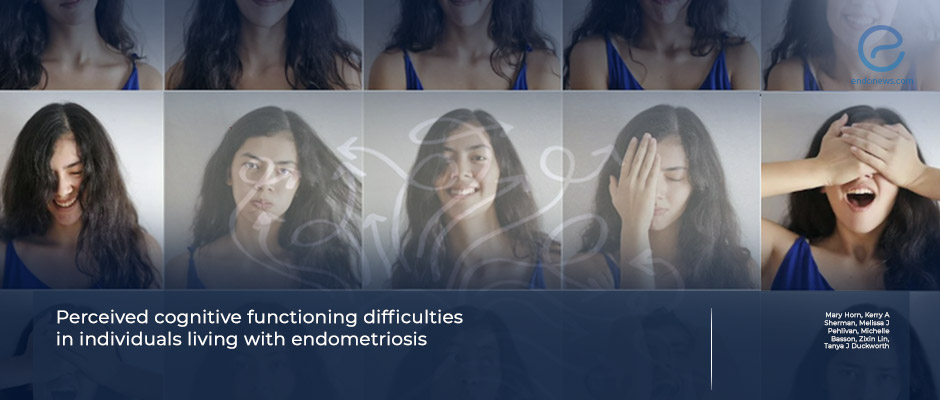Cognitive Difficulties in Endometriosis
Jul 11, 2025
Pain, fatigue, and mood symptoms drive perceived cognitive difficulties in endometriosis.
Key Points
Highlights:
- Cognitive dysfunction is highly prevalent among individuals with endometriosis and may contribute to workplace absenteeism, reduced academic performance, and dropout.
Importance:
- Supportive interventions, including cognitive rehabilitation and emotional well-being strategies, could improve cognitive functioning and quality of life in this population.
What’s done here?
- This quantitative study assessed perceived cognitive dysfunction in endometriosis patients and its associations with pain, fatigue, and depressive symptoms.
- An online survey was conducted with 1,239 Australian participants meeting inclusion criteria: self-reported endometriosis diagnosis, age ≥18 years, English proficiency, and internet access. Pregnant individuals were excluded.
- The survey collected data via REDCap using validated tools (FACT-Cog for cognitive function, alongside measures of pain, fatigue, and depression).
Key results:
- 80% of participants reported perceived cognitive impairment at clinically significant levels.
- Cognitive challenges were associated with higher pain, fatigue, and depressive symptoms.
- Hormonal treatments showed a protective effect against depression-related cognitive impairment but appeared to worsen the impact of pain on perceived quality of life.
- Pain medications also amplified the negative effects of high pain on cognition-related quality of life and social feedback.
From the Editor-in-Chief – EndoNews
"This study shines a light on a long-overlooked dimension of endometriosis: cognitive impairment. The finding that 80% of patients report clinically significant cognitive difficulties reframes how we think about the disease’s true burden.
These results underscore the need to move beyond treating endometriosis as merely a pelvic condition. Addressing pain and fatigue is essential—but so is recognizing their impact on cognitive health, which can affect education, careers, and overall quality of life.
This work is a call to action for clinicians and researchers alike: we must investigate the mechanisms driving these cognitive changes and develop multidisciplinary approaches that encompass physical, emotional, and cognitive support. Only then can we truly improve outcomes for people living with endometriosis"
Lay Summary
Endometriosis, a chronic inflammatory condition affecting reproductive-aged women, is increasingly recognized for its impact beyond pelvic pain and infertility. Recent evidence suggests it may also impair cognitive functioning, with symptoms like memory lapses and difficulty concentrating often described as “brain fog.”
In a new study published in the Journal of Health Psychology, Dr. Horn and colleagues from Australia surveyed 1,239 individuals with self-reported endometriosis. Using the Functional Assessment of Cancer Therapy-Cognitive Function (FACT-Cog) tool, they found that approximately 80% of participants reported clinically significant perceived cognitive impairments.
Cognitive difficulties were strongly associated with higher pain levels, fatigue, and depressive symptoms, highlighting a complex interplay of physical and psychological factors.
Interestingly, hormonal treatments appeared to buffer the negative impact of depression on cognitive function but paradoxically worsened the effect of high pain on quality-of-life measures.
The authors suggest that these widespread cognitive challenges may contribute to workplace absenteeism, academic disruptions, and decreased daily functioning—issues often attributed solely to endometriosis’ physical symptoms.
They call for further research to understand the mechanisms underlying these associations and to develop targeted interventions aimed at preserving cognitive health in this population.
Research Source: https://pubmed.ncbi.nlm.nih.gov/40270357/
endometriosis cognitive functioning pain fatigue depression cognitive impairment

